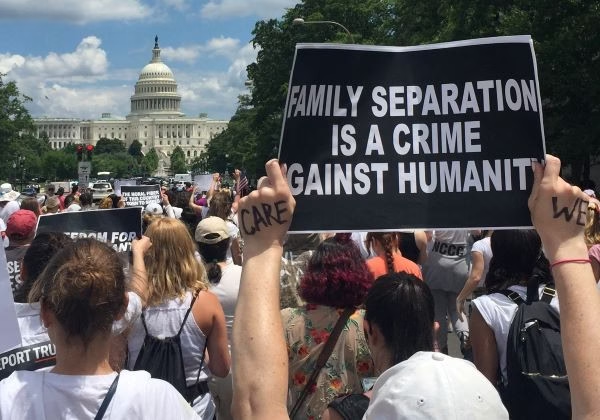In the flurry of immigration-related executive orders recently issued by President Donald Trump, a majority have pertained to keeping migrants from crossing the nation’s borders. As Documented has previously reported, the administration has done much to limit immigrants fromHaitiandVenezuela, as well asrefugeeswho have fled violence from their home countries.
It’s no surprise, then, that Trump’s recent immigration policies feel like déjà vu, with many advocates and politicians noting they are merely fine-tuned iterations of his first-term policies that similarly sought to deter immigration. Case in point: On his first day back in the White House, Trump “quietly signed” the executive order “Protecting the United States from foreign terrorists and other national security and public safety threats,” reports Syma Mohammed for Documented. The order was issued with the intent to enable the government to deport any immigrants who were arrested, and criminalize others, according to legal experts.
Many say the order is an evolution of Trump’s “Muslim ban” from 2020, in which he attempted to ban people from seven Muslim-majority countries from entering the U.S. Mohammed writes that the order dictates that non-citizens must not “bear hostile attitudes” toward “citizens, culture, government, institutions, or founding principles” and “not advocate for, aid, or support designated foreign terrorists.”
If the language appears vague, that’s likely intentional, said Justin Harrison, an expert on protests and first amendment rights at the New York Civil Liberties Union, the New York chapter of ACLU.
“The broad ambiguity of the language is designed to give the administration as much wiggle room as possible,” he told Mohammed.
In addition to deporting immigrants who were arrested, the order calls for a set of actions within the month “to protect” Americans from the “actions of foreign nationals who have undermined or seek to undermine the fundamental constitutional rights of the American people.” Those targeted could face criminal charges or have their visas or green cards revoked
“It’s a call for viewpoint discrimination,” Harrison explained. “It’s a call for discrimination by subject matter. It can be used to persecute not only political protesters but people who speak out against Trump’s priorities.”
Read more from reporter Syma Mohammed’s report about theexecutive order here.



